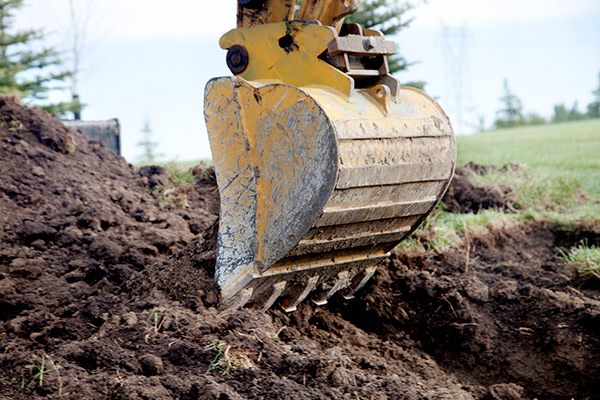Excavating Ohio - Leading Excavation Service Providers for Ohio Projects
Excavating Ohio - Leading Excavation Service Providers for Ohio Projects
Blog Article
Comprehensive Excavation Techniques: Grasping the Principles for Success
In the realm of construction and civil engineering, the significance of efficient excavation methods can not be overemphasized. The mindful planning, specific implementation, and precise attention to information required in excavation projects require a detailed approach that includes numerous basic elements. From preliminary soil evaluation to the implementation of precaution and regular progress surveillance, grasping these core elements is crucial for achieving success in any type of excavation undertaking. The true mastery lies not simply in comprehending these fundamentals but in perfectly incorporating them to browse the intricacies of excavation jobs with skill.
Understanding Excavation Task Preparation

The preliminary phase of any kind of excavation project is the preparation phase, where crucial decisions are made that can significantly affect the outcome of the task. Understanding the project spending plan, scope, and timeline restrictions is critical for producing a thorough excavation plan that makes certain the project's success.
One key facet of excavation job planning is the advancement of a thorough timeline that lays out the series of due dates, turning points, and activities. This timeline acts as a roadmap for the job group, permitting them to track progression and make required modifications to guarantee the task remains on timetable. Furthermore, a well-defined budget that represents all expenses, consisting of tools service, labor expenses, and materials, is essential for staying clear of price overruns and delays. By thoroughly considering all these factors throughout the drawing board, excavation projects can be performed successfully and properly, causing effective outcomes.
Soil Evaluation and Site Examination
Carrying out detailed soil analysis and site evaluation is a critical action in the preparation phase of any excavation job. Dirt evaluation includes establishing the structure, framework, and residential properties of the dirt at the excavation website. This information is crucial for understanding the soil's bearing ability, moisture material, and capacity for erosion, which are key consider establishing the excavation techniques and equipment needed for the job.
Website examination exceeds soil evaluation and includes a broader analysis of the total site problems. This assessment consists of determining any potential threats, such as underground utilities, ecological problems, or unstable surface, that could affect the excavation procedure. By extensively assessing the website, task supervisors can establish effective excavation strategies that prioritize security, efficiency, and environmental protection.
Making use of innovative modern technologies like ground-penetrating radar, dirt sampling, and drone studies can boost the precision and performance of soil analysis and website analysis. Spending time and sources in these preliminary steps can eventually save time and prevent pricey delays or complications during the excavation procedure.
Devices Choice and Utilization
Efficient excavation jobs depend heavily on tactical equipment choice and application to ensure optimal efficiency and productivity. Picking the best tools for the task is vital in taking full advantage of effectiveness and reducing downtime. Elements such as the sort of dirt, deepness of excavation, and project range play a considerable duty in determining the most suitable tools for the job at hand.

Along with picking the ideal equipment, proper utilization is essential to task success. Operators must be trained to manage the equipment securely and efficiently - lancaster excavation. Routine maintenance checks and timely repairs aid avoid breakdowns and ensure constant performance throughout the task
Security Measures and Regulations Compliance
In the realm of excavation projects, prioritizing precaution and compliance with laws is paramount to guaranteeing a legitimately audio and safe and secure operational environment. Safety measures incorporate a variety of methods, consisting of carrying out comprehensive site assessments, executing proper signs and obstacles, and offering appropriate safety and security training for all employees Visit Website involved in the excavation process. Adherence to policies, such as OSHA needs in the USA, makes sure that the excavation task satisfies the necessary standards to secure employees, spectators, and the surrounding atmosphere.

Tracking Progression and Adjusting Methods
Just how can predict managers effectively track the development of excavation tasks and adapt their techniques appropriately to optimize outcomes? Tracking progress is vital for making certain click here for info that excavation tasks remain on track and fulfill due dates.

Verdict
Finally, grasping the principles of thorough excavation approaches is crucial for the success of any type of project. By understanding job planning, examining dirt and website problems, selecting suitable tools, abiding with safety guidelines, and keeping track of progression, job managers can ensure a smooth and reliable excavation process. Applying these techniques will result in successful outcomes and minimize prospective dangers or troubles during the excavation job.
The initial phase of any kind of excavation project is the preparation phase, where vital decisions are made that can significantly influence the result of the project. Recognizing the project range, budget plan, and timeline restraints is essential for creating an extensive excavation strategy that makes sure the task's success.
Just how can forecast supervisors properly track the innovation of excavation tasks and adjust their techniques appropriately to optimize end results? By very closely keeping an eye on development and being prepared to adjust approaches, job supervisors can improve the general success of excavation projects.
By understanding project preparation, assessing soil and website problems, choosing proper devices, complying with security guidelines, and monitoring progress, task supervisors can make certain a smooth and efficient excavation process.
Report this page